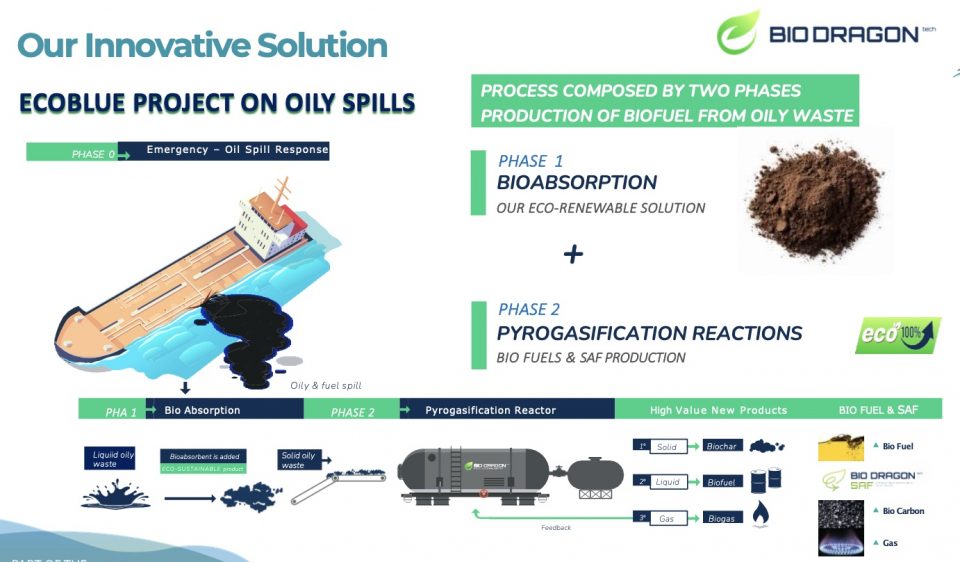CAD04: Circular economy port project with cleaning and obtaining biofuels from Marpol oils and oil spills on land and at sea
- image created by our
Cádiz
- Organisation
- Bio Absoil Solutions, SL
- Santiago Miranda
Every year there are at least 3 major oil spills due to accidents of large ships and more than 3,000 illegal spills at sea. In addition to the enormous environmental impacts they generate, the cost to clean up these oil spills ranges from 10,000 € to several million €, depending on the magnitude of the spill. The cleanup of all fuel oil spills in the water is characterized by: 1.- They have a low cleanup efficiency (maximum collection of fuel oil between 10% and 15%). 2.- Many new solid and liquid toxic wastes are generated. 3.- No waste is valorized at all The company Bio Absoil and its associate Biodragon, have an innovative circular economy project to optimize the cleaning of oil spills, which include oil spills in water, oil spills on land and the easy cleaning and collection of MARPOL oils, combining a complementary protocol of cleaning the oil spill with the use of natural absorbents, and a subsequent anaerobic thermal valorization of the waste created to obtain marketable fuels. EU, national and regional regulations favor and promote the inclusion of the circular economy in the treatment of waste, such as LAW 7/2022, of April 8, on waste and contaminated soils for a circular economy of Spain and LAW 3/2023, of March 30, on the Circular Economy of Andalusia. However, the vast majority of EU ports are not promoting the circular economy in relation to the management of this hazardous oily waste pollution. The challenge proposed by Bio Absoil in Hackathon is how to make this circular economy solution known and reach quickly all ports in Europe, and invite some of them to implement it.
- What the challenge owner would like to develop over 48h
- I would like to get a tool (a method, an application, or a system), which allows EU authorities and interested citizens to quickly and efficiently learn about environmentally friendly disruptive technologies so that citizens can push and convince politicians and authorities to develop and implement brilliant solutions that promote a circular economy.
- Which skills the challenge owner is looking for
- a multidisciplinary team composed of Data analyst, IT developer, Oceanographer, Socio-economist, Geomatics engineer, Marine biologist, etc.



